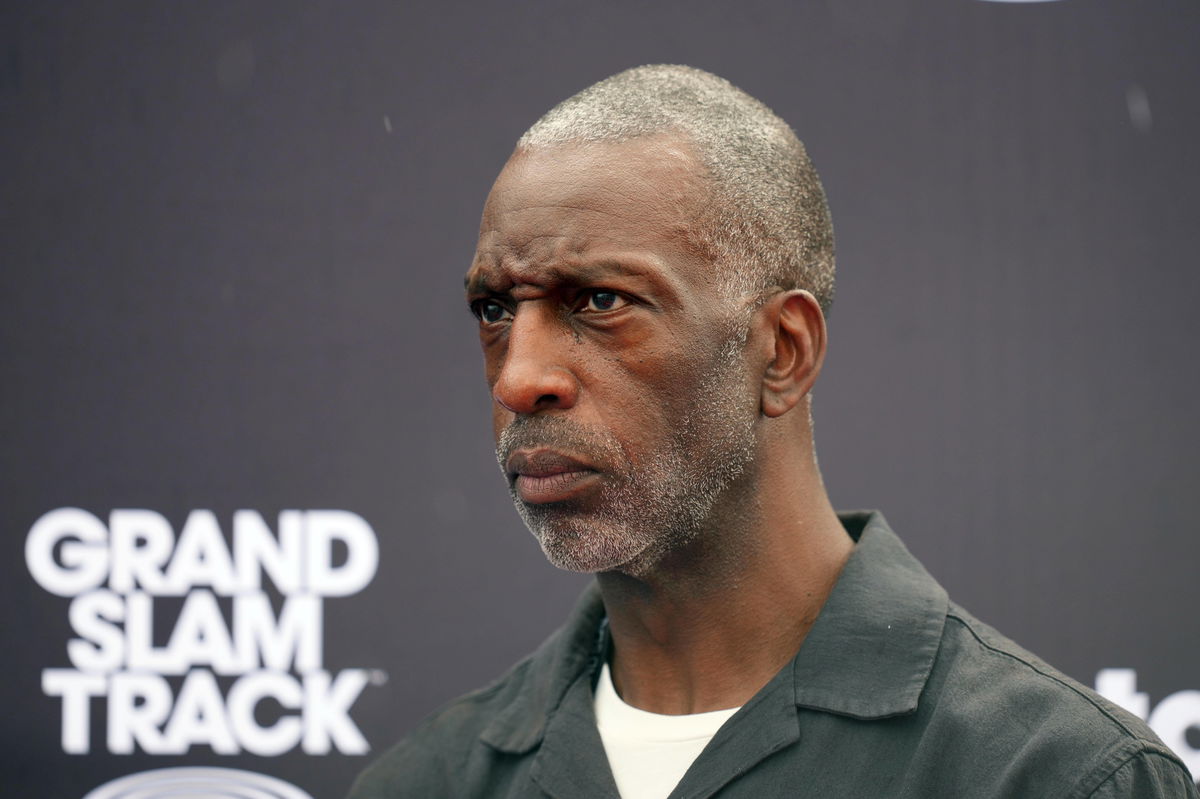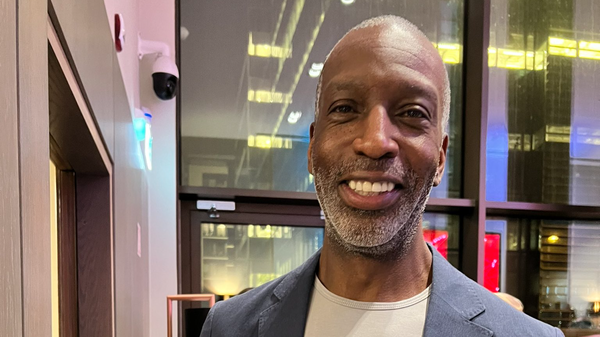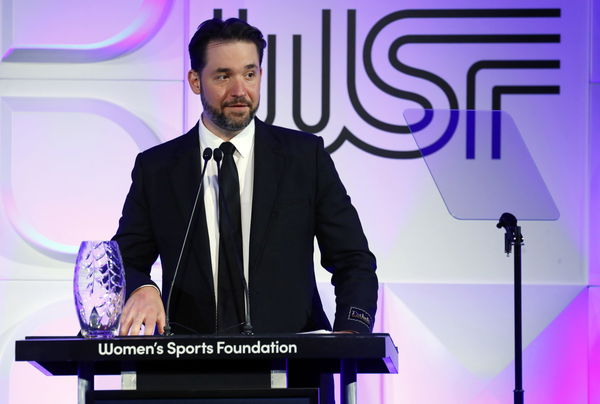
Imago
Track & Field: Grand Slam Track Miami May 4, 2025 Miramar, FL, USA Michael Johnson reacts during the Grand Slam Track Miami at Ansin Sports Complex. Miramar Ansin Sports Complex Florida United States, EDITORIAL USE ONLY PUBLICATIONxINxGERxSUIxAUTxONLY Copyright: xKirbyxLeex 20250504_hlf_al2_126

Imago
Track & Field: Grand Slam Track Miami May 4, 2025 Miramar, FL, USA Michael Johnson reacts during the Grand Slam Track Miami at Ansin Sports Complex. Miramar Ansin Sports Complex Florida United States, EDITORIAL USE ONLY PUBLICATIONxINxGERxSUIxAUTxONLY Copyright: xKirbyxLeex 20250504_hlf_al2_126
When Michael Johnson unveiled Grand Slam Track, it promised to revolutionise the sport — a staggering $12.6 million prize pool, salaries for its 48 core “racers,” and generous appearance fees for the challengers dropping in for single meets. The ultimate prize? A jaw-dropping $100,000 payout for winning an event group — a figure that easily eclipsed earnings from traditional track circuits. The track world buzzed with anticipation. But then came the crash.
Watch What’s Trending Now!
The season-ending showdown in Los Angeles was supposed to be the crown jewel. Instead, on June 12, Johnson dropped the bombshell: the LA meet was cancelled, abruptly ending the inaugural season. It wasn’t just disappointing — it sent shockwaves through a sport that had briefly tasted what could’ve been a financial game-changer. Officially, Grand Slam Track has denied any financial turmoil. But the writing is on the wall. Cost-cutting measures surfaced fast: cancelling the LA event and the Philly 5K alone saved them over $3 million. Even so, many athletes remain unpaid for their efforts in Kingston, Miami, and Philadelphia. Worse, frustration is mounting as promises remain just that — promises.
And yet, don’t expect swift intervention from World Athletics. Speaking before the London Diamond League, president Seb Coe admitted he’s been in touch with athletes, agents, and meet directors — but hasn’t spoken to Johnson “for several months.” When asked if World Athletics might step in? Coe offered a guarded, “Well, let’s just watch this space.” Notably, GST executive Kyle Merber emailed a commitment, “We plan to make payments for Kingston prize money before the end of July and the remaining payments due by the end of September, which includes the honouring of Los Angeles appearance fees.” Whether that timeline is achievable is still unclear, but their messaging carries an undeniably cautious tone.
ADVERTISEMENT

Imago
Credit: X/ Michael Johnson
And in such a situation, the athletes are missing the bodies that could have lent support. Interestingly, World Athletics CEO Jon Ridgeon also struck a note of empathy: “We want more high-profile events where the athletes can compete, the fans can watch, athletes can make money. It’s all good, but we sustainably want them. In Michael’s defence, because he is facing some challenges at the moment, it just shows you how hard it is to launch new stuff. In any sport, it’s hard.” For now, Grand Slam Track sits at a crossroads — a bold vision now shadowed by questions of sustainability and credibility. As for the athletes? They can only hope the grand promises don’t fade into grand regrets. But there was a time when Seb Coe had openly supported Michael Johnson’s league.
Back in December, after the World Athletics Council meeting, Seb Coe sounded pretty optimistic. He said, “We should be comforted that we’ve created a landscape that people think that it’s worth investing in our sport. They weren’t doing that five years ago.” And he wasn’t wrong — the launch of Athlos NYC and Grand Slam Track promised a new era of professionalism in track and field, with extra pay and opportunities for athletes. Coe even backed it, saying, “I want them to be successful – I want them to add lustre to our sport and I think there’s space for everybody here.” But fast forward to now, and it’s a whole different, messier story. GST’s troubles have cast a shadow over that optimism. Interestingly though, the CEO of Athlos NYC, another pro league in the mix, has chimed in on the situation — and he has got his own take on how things are playing out.
ADVERTISEMENT
Michael Johnson’s league had to face Alexis Ohanian’s words
Noah Lyles saw it coming. In a June 18 interview with James Emeritt, Lyles didn’t hold back when reflecting on the athletes caught in the Grand Slam Track mess — left stranded after signing on to what was supposed to be a game-changing league. “That’s very saddening,” Lyles said, “because that doesn’t just affect this league, Grand Slam, but it affects every other athlete that you know might have leagues in their head in the future. Or for any athlete who’s saying, ‘Hey, you know, I was a part of this, and even though I was a part of it, it wasn’t able to succeed to the best of ability’.” And Lyles isn’t alone in his frustration.
ADVERTISEMENT

Getty
NEW YORK, NEW YORK – OCTOBER 12: Champion for Equality Award Recipient Alexis Ohanian speaks on stage during The Women’s Sports Foundation’s 2022 Annual Salute To Women In Sports Gala at Pier Sixty at Chelsea Piers on October 12, 2022 in New York City. (Photo by John Lamparski/Getty Images for WSF)
Alexis Ohanian, the co-founder of Reddit and the driving force behind Athlos NYC, let his disappointment be known too. In a Front Office Sports report, Ohanian didn’t mince words about the state of track and field: “No one wants to see less investment in the sport. Nothing could prepare me for the broke-ness that exists in the infrastructure around this sport, and the sort of low-integrity behavior. … It’s sad.” At this point, the sentiment is clear: the sport deserves better. Yet for the athletes still waiting on their payments — it’s like being stuck in the middle of the ocean without a life raft, and with World Athletics watching from the shore.
ADVERTISEMENT
ADVERTISEMENT
ADVERTISEMENT